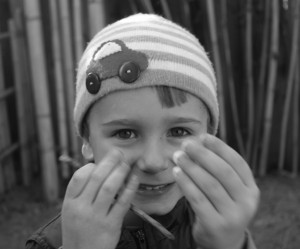Helping parents make our cooperative school work! Please remember the following when you are helping parent to make the day go smoothly. If you ever have any questions or concerns, please contact the director or your child’s teacher.
Specific Class Guidelines
In addition to the general guidelines below, each class has specific notes.
- Nadia’s 4s/5s
- Hannah’s 4s/5s
- Claire’s Younger 3s
- Kelly’s Younger 2s and Older 3s
- Stephanie’s Older 2s
Your Helping Parent Day
 All helping parents working in the classrooms will need to be fully vaccinated against COVID – 19 (including boosters).
All helping parents working in the classrooms will need to be fully vaccinated against COVID – 19 (including boosters).- Be prepared to work as helping parent one or two times per month. The room representative for each class will maintain the helping parent calendar.
- For 2s and 3s classes, arrive at school by 8:45am on your helping parent days. Be prepared to stay at school until 12:30pm.
- For 4s/5s classes, arrive at school by 8:15am on your helping parent days. Be prepared to stay at school until 1:00pm.
- The time before and after class is intended for preparation and cleanup. It also allows time for teacher and parent to talk about plans or special concerns.
- The helping parent is typically responsible for providing the snack. Please refer to the snack page for more information.
- Please dress for active participation. Expect to get as dirty as the children.
- Per state licensing regulations, siblings may not join the class. We encourage parents with infants and toddlers to “swap” childcare with other classroom parents in the same situation. If you would like some help linking up with another parent, please ask the Director or assistant to the Director.
- Follow the teacher’s guidance on participation in the classroom.
Clean Up
- Parents are asked to sweep under snack and art tables according to teacher’s directions and to clean snack tables, countertops, and classroom sinks.
- Once classroom surfaces are clean, please spray with sanitizing solution.
- All art materials, as well as inside and outside toys, should be put away for the day.
- Please check with your teacher to be sure all cleanup obligations have been met prior to leaving.
Suggestions for Working With Children
In general, children will feel most comfortable if you can:
- Use a low voice when conversing.
- Sit on the floor or a child-sized seat so that your physical size does not overwhelm.
- Listen carefully to what children say. This indicates adult respect of their ideas and models listening behavior that the children will eventually imitate.
- Be available but not intrusive. If children are productively engaged, it’s okay to watch. Be aware that preschool-aged children learn more by doing than by talking (or listening to adults). Too much adult chatter is a distraction, and in the case of the youngest children it prevents them from practicing newfound vocabulary.
Successful Classroom Techniques
- Telling children what to do rather than what not to do. For example instead of, ”We don’t throw the toys,” a more helpful comment might be “Balls are for throwing; blocks are for building.”
- Giving choices when possible. Where compliance is necessary or expected (such as at clean-up time, on field trips, or at fire drills), use a matter-of-fact, no-nonsense tone. In some situations, a humorous approach works well.
- Giving children sincere approval when they accomplish a task that is difficult for them.
- Encouraging growth toward independence. Certainly a child’s request for help should be honored but in a way that leads him/her in the direction of self-reliance. Our goal is to help each child develop the self-esteem that comes with a sense of one’s own competence.
- Letting children know of changes in the routine. Giving notice near the end of an activity time gives children a chance to complete their projects.
- Verbally acknowledging children’s feelings. Language can serve to moderate strong emotions. Assuring children that these emotions are universal helps them to feel they have an ally in the understanding adult. Anger, frustration, hunger, fatigue, sadness, and excitement can all be part of a young child’s day.

